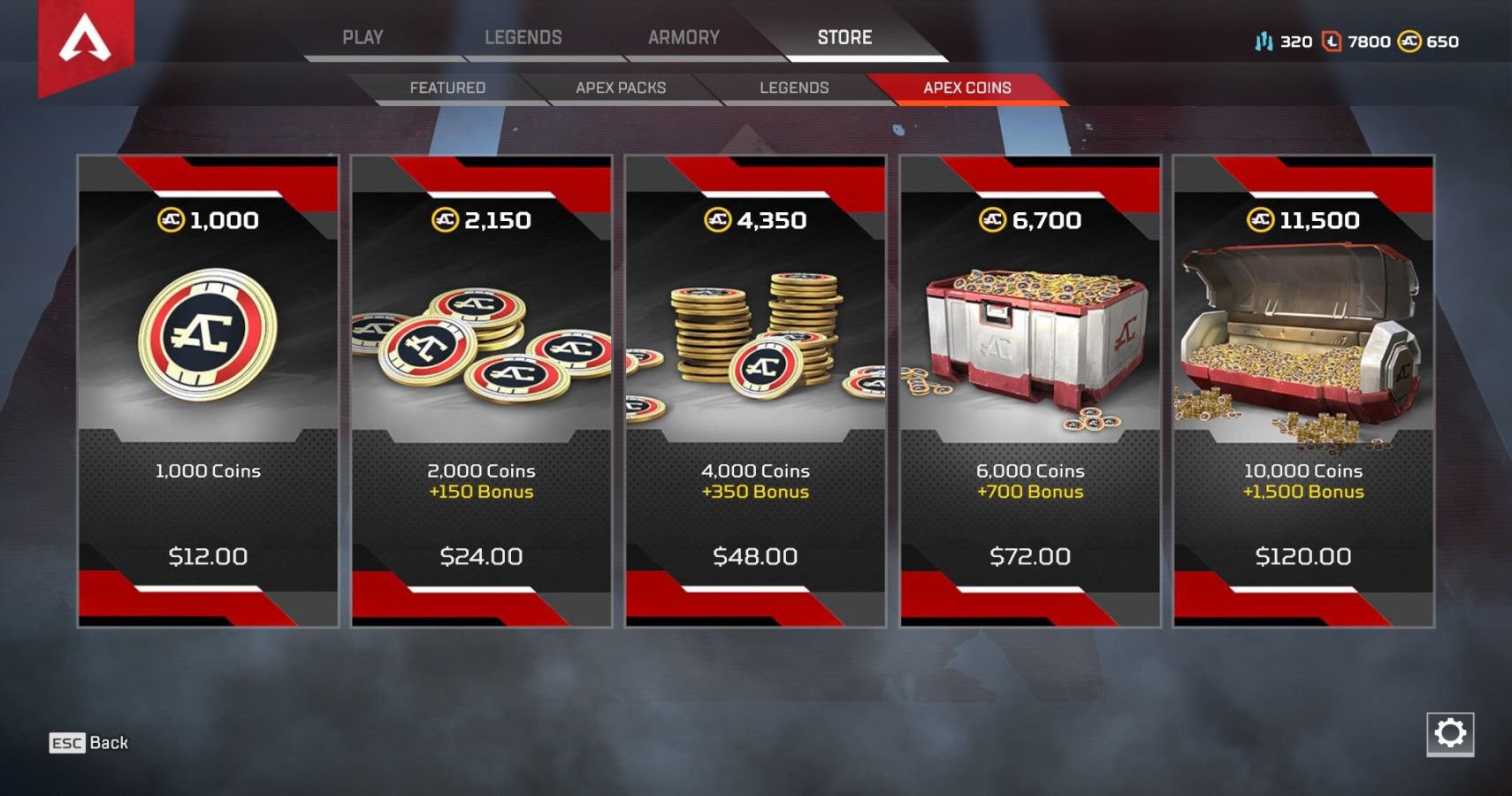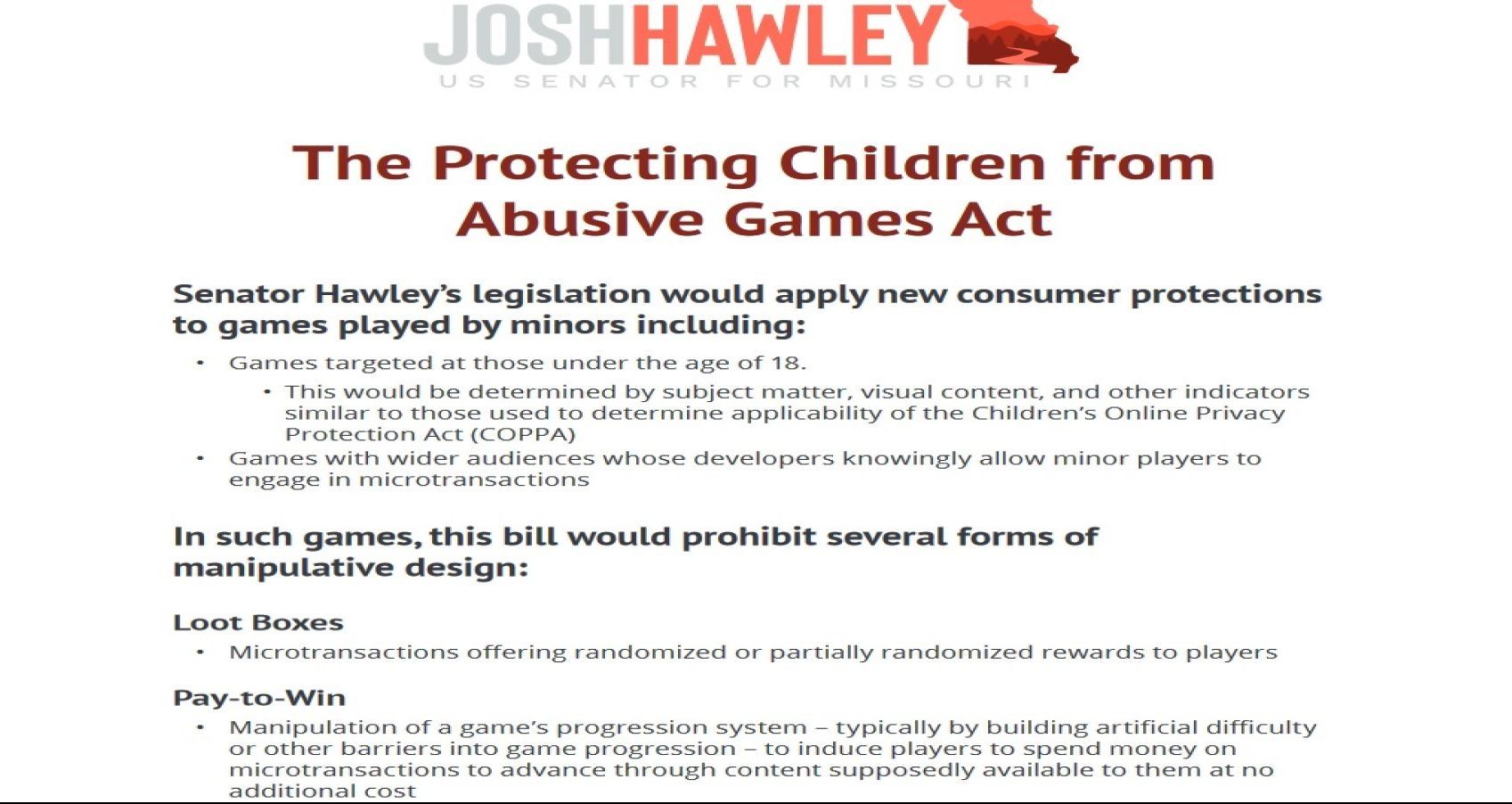New legislation soon to be introduced to the U.S. Senate by Missouri Senator Josh Hawley could spell the end of paid loot crates and pay-to-win transactions in games targeted to those below the age of 18 in the United States.
The move doesn't come as much of a surprise given that the U.S. government had a similar discussion as it relates to gambling and in-game transactions within the game Counter Strike Global Offensive. While Valve took it upon itself to curb the sale of such items to minors, ultimately there were no age limitations placed on such transactions. This new bill might not eliminate all transactions of this nature given that people lie about their age, but it will start the process by holding game companies more accountable.
This new bill will not only once again open up the discussion about what is considered online gambling, but it will also force game companies to start thinking about other ways that they can generate revenue in their games. It will ensure that players are no longer forced to purchase items in order to be on a level playing field and it will make game companies more aware of how their actions impact their community as it relates to these types of transactions.
According to Kotaku, the main reason behind the bill was the fact that games like Candy Crush seemed to pray on individuals who had become addicted to their games, making pay-to-win transactions almost necessary for progression. The Protecting Children From Abusive Games Act will prevent companies from selling items to minors, which are designed to give them a competitive advantage or that are necessary for progression.
Under the bill, Congress will use the Children's Online Privacy Protection Act to then determine which games are geared toward individuals below the age of 18. Additionally, the Federal Trade Commission would be instructed to view such games as unfair trade practice, with state attorney generals given the power to monitor and bar the sale games within their respective states.
While many within the gaming industry may push back, stating that it is up to the parents to police their children, that is only valid to a point. There are few within the gaming community who support the pay-to-win mechanics and it is for this reason that games like Star Wars Battlefront II tanked so badly. Gamers don't mind paying for custom painted guns or items, but they do have a problem with paying for things that are required to complete the game. It takes the fun out of the game and makes players feel as if they have to spend their money just to play something that they've already paid for.
Though the bill is for a good cause, it does open the door to further regulation within the gaming industry. It seems like a bit of a reach for someone's age to be the deciding factor of whether or not they can play a certain game. Game companies will need to work with congressional representatives to produce a bill that works well for both parties, otherwise, it might end with companies seeking loopholes.


